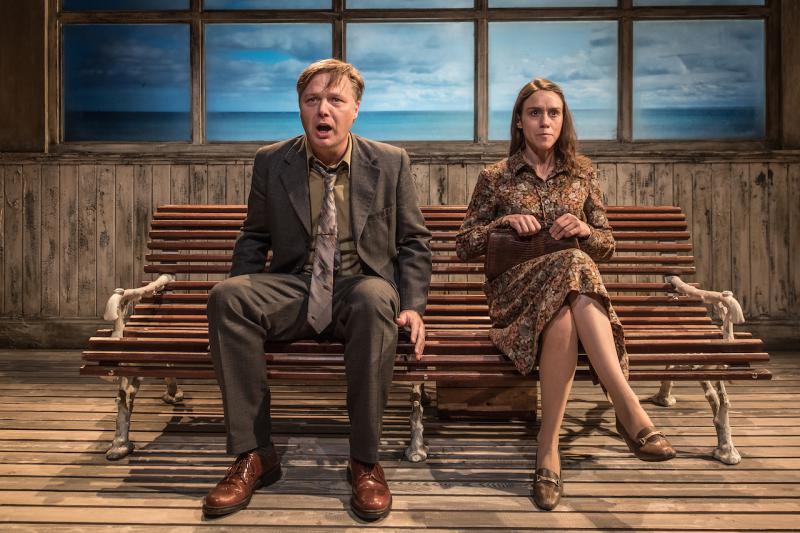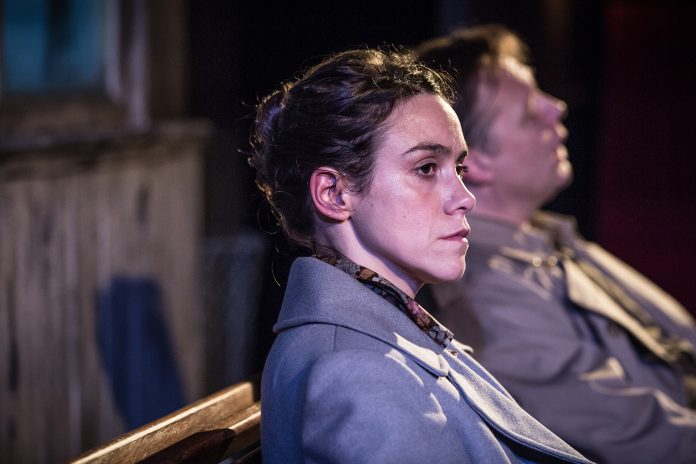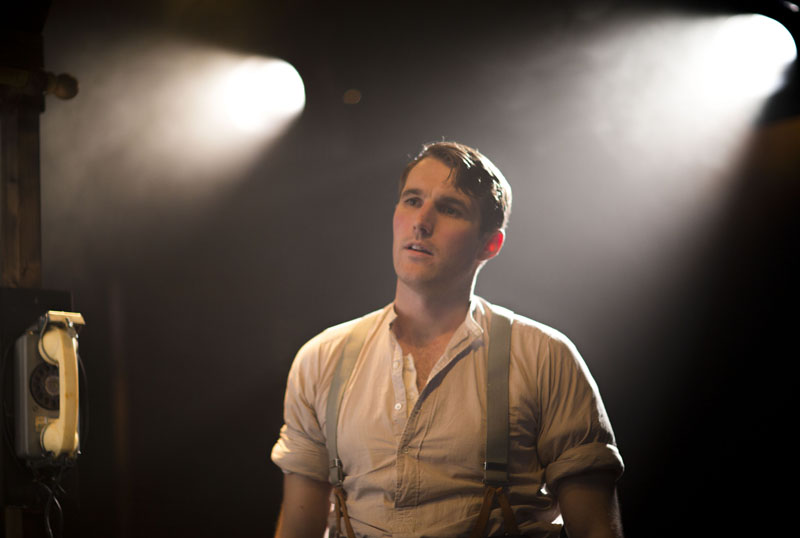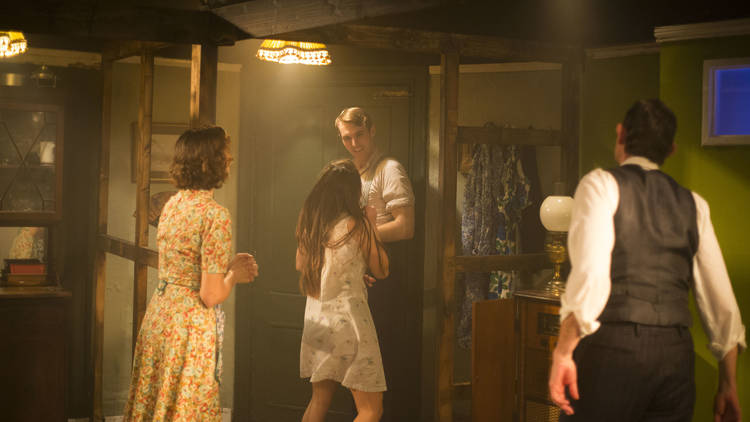 I’ll always be grateful to Steven Berkoff. Back in my days as drama lecturer, blown away by his 1983 play West, his second foray into life on London’s gangland manors, I wrote to him via his agent to ask if I might borrow the unpublished script. The hard copy arrived almost as fast as an email might now, by return with a friendly invitation to keep it. My students adored playing the scabrously ornate muscular verse and the body language it demanded.
I’ll always be grateful to Steven Berkoff. Back in my days as drama lecturer, blown away by his 1983 play West, his second foray into life on London’s gangland manors, I wrote to him via his agent to ask if I might borrow the unpublished script. The hard copy arrived almost as fast as an email might now, by return with a friendly invitation to keep it. My students adored playing the scabrously ornate muscular verse and the body language it demanded.
Lunch dates from 1983, too and although it is prose, the language is often as extravagant – and as bracingly sexual. A man and a woman share a seaside bench at lunchtime. He confides lustful thoughts that she arouses, which make Trump’s ill-judged bragging look prim, and it’s in-yer-face in this intimate space, too. He is yearning, rather than boasting, with every muscle and fibre in Shaun Dooley’s extraordinary performance. Emily Bruni’s woman is equally physical – at first sight primly upright and uptight, but actually coiled like a spring ready to snap – or catch him in those coils...
Thanks also to Nigel Harman’s direction and movement director Alistair David, what follows is a masterclass in physicalising Berkoff’s language that would have enthralled my students. They prowl around each other like courting cats, he wiping from his brow real drops of sweat with a real hanky. At this proximity, audience members might also sweat uncomfortably as the couple eventually end up adjusting their dress at our feet.
But it’s their relish of the language that carries you along, the taste of it on the tongue – even when his chat-up line is trying to interest her in the space he sells for a living “electro-type on quarto double weight” (yes, space on paper, not online, Lunch is of its time) he enunciates alluringly in his attempt to melt “an ice lolly in a whirlwind.” “You’re not looking for me, you’re looking for it, you canine groper,” is her riposte (this comes more like a chat-up line before that apparent tumble behind the beach shelter).
That’s just a taste of what’s to come in the Bow of Ulysses, set (and indeed written) 20 years later and as many years into a marriage on the rocks. Rather than trading bracing insults, though, the estranged couple express themselves in longer, bitter monologues, downbeat this time. It was good to see these short companion pieces together, though strangely the first, as a real period piece, seemed less dated than its sequel. Ben and Max Ringham provide an evocative seaside soundscape and designer Lee Newby has a great eye for shades of brown that match at least the dress of this ill-matched pair in a seaside shelter that’s the only restful element in an unsettling evening.
By Judi Herman
Photos by Marc Brenner
Lunch and The Bow of Ulysses runs until Saturday 5 November, Monday to Saturday 7.45pm Thursday and Saturday 3pm, £19.50-£35, at Trafalgar Studios 2, 14 Whitehall, SW1A 2DY; 0844 871 7632. www.atgtickets.com






